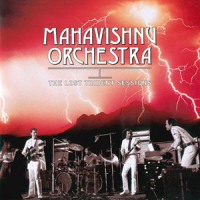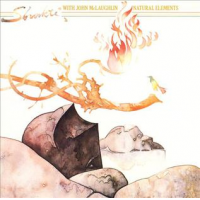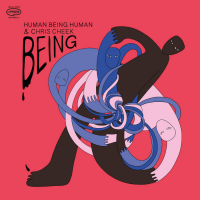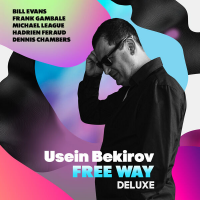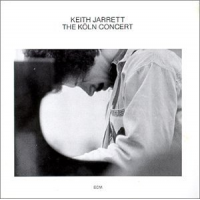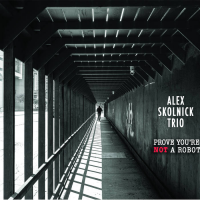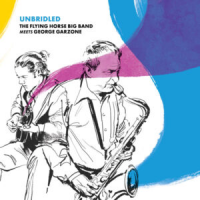Home » Jazz Articles » Album Review » Mahavishnu Orchestra: The Lost Trident Sessions
Mahavishnu Orchestra: The Lost Trident Sessions
Since this studio effort was never finished, the live Between Nothingness and Eternity was released instead, featuring several numbers from the failed recording sessions. McLaughlin apparently felt the studio efforts had not been fully realized. In hindsight, he was probably right. After all, if the vibe wasn't right and he was less than pleased, so be it. But just because McLaughlin didn't think the sessions were up to his usual standards doesn't mean they don't bear interest. They sound great and have historical significance. That's justification enough for their delayed release.
Apparently all of the old band members were contacted and asked for permission to release the recording, warts and all. This was probably done as a courtesy from Belden, because as far as any one can tell, the musicians had absolutely no control over their Columbia Records output anyway.
At any rate, The Lost Trident Sessions provide us with the future direction of the MO. That is, the band was about to break up. This is evidenced by three tunes penned by members other than McLaughlin. Jan Hammer's piece "Sister Andrea" may be familiar from Between Nothingness and Eternity. Jerry Goodman's "I Wonder" and Rick Laird's "Steppings Tones" [sic] also appear. In addition, the Trident Sessions feature the McLaughlin originals "Dream," "Trilogy," and "John's Song #2." Both "Dream" and "Trilogy" are also included on BN&E , while "John's Song #2" is new to McLaughlin's recorded output.
"John's Song #2" is the album's standout. It serves as a precursor to the style to be heard on the new Mahavishnu Orchestra's Visions of The Emerald Beyond a year later. The rapid-fire starts and stops and ever-changing themes make it a fusion treasure. It also serves as a particular showcase for Goodman. His violin soars here to much greater heights than on his earlier efforts.
The tighter versions of tunes from BN&E are welcome. "Trilogy" in particular is a taut composition which would later be fleshed out on the live album. Hammer's "Sister Andrea" sounds pleasing and includes enough distinction to render it distinct from the live performance. Hammer's soloing is also more impressive on the studio effort.
"I Wonder" and "Steppings Tones" present a problem. Both tunes are somewhat simple, but catchy. Although enjoyable, they just do not belong on a Mahavishnu Orchestra album. One can understand the musical tension developing at the time after listening to these two cuts. In fact, strict Mahavishnuites would also point a crooked finger at Hammer's "Sister Andrea," which gives early indications as to where the fusion movement was moving. Unfortunately, it was moving out of touch.
The most surprising aspect of the recording is the fine, up-front performances from Goodman and Laird. We all knew by this time how great McLaughlin, Cobham and Hammer were. Laird and Goodman, although clearly talented, seemed earlier to be along for the ride. This recording corrects that misconception in a big way. Both players make strong statements, and surprisingly, these statements do not appear on their own compositions. Listeners who still seek to validate Laird's playing should step back and appreciate "One Word" from Birds of Fire.
The sound quality is great given the fact that these tapes were gathering dust for all those years.
The Lost Trident Sessions is an important historical find that contains some awesome music, and it also gives some hints as to why the band was running into problems. The record is a must for any fusion fan; critics who insist on dismissing its quality or importance should be court-martialed post haste!
Related link: John McLaughlin Reviews @ All About Jazz .
Track Listing
Dream; Trilogy; Sister Andrea; I Wonder; Steppings Tones; John's Song #2
Personnel
Mahavishnu Orchestra
band / ensemble / orchestraJohn McLaughlin; Guitar: Jerry Goodman; Violin: Jan Hammer; Keyboards: Billy Cobham; Drums
Web: www.legacyrecordings.com
Album information
Title: The Lost Trident Sessions | Year Released: 2000 | Record Label: Columbia Records
Tags
About Mahavishnu Orchestra
Instrument: Band / ensemble / orchestra
PREVIOUS / NEXT
Support All About Jazz
 All About Jazz has been a pillar of jazz since 1995, championing it as an art form and, more importantly, supporting the musicians who make it. Our enduring commitment has made "AAJ" one of the most culturally important websites of its kind, read by hundreds of thousands of fans, musicians and industry figures every month.
All About Jazz has been a pillar of jazz since 1995, championing it as an art form and, more importantly, supporting the musicians who make it. Our enduring commitment has made "AAJ" one of the most culturally important websites of its kind, read by hundreds of thousands of fans, musicians and industry figures every month.


